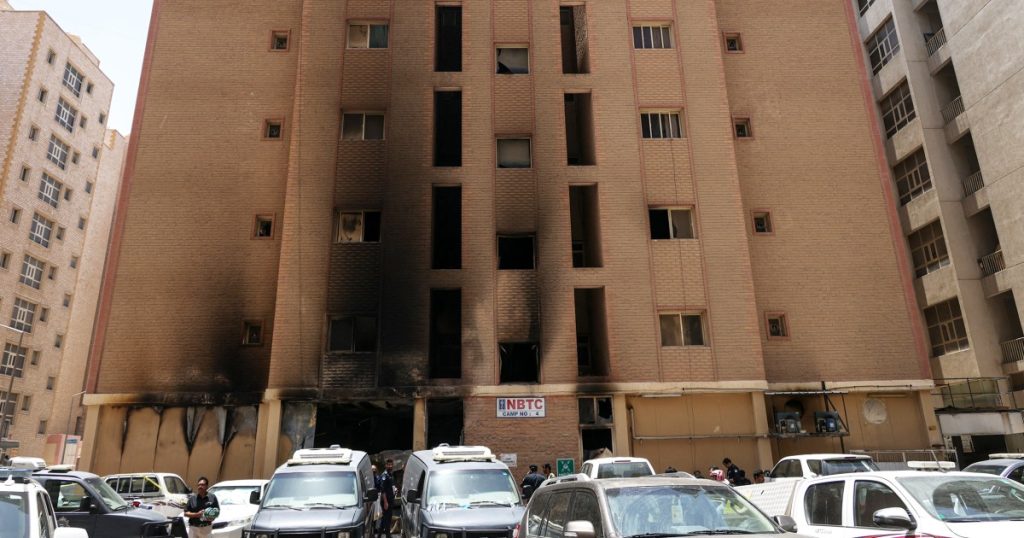A tragic fire in Kuwait resulted in the deaths of at least 40 Indian nationals and injured more than 50 foreign workers. The blaze occurred in a building that housed laborers and was believed to be linked to code violations. The Interior Minister ordered the arrest of the building’s owner and expressed his intention to address issues of labor overcrowding. The head of the firefighters’ Accident Investigation Department warned that the death toll could be higher than reported.
India’s external affairs ministry confirmed the deaths of around 40 Indian nationals and the injuries of over 50 individuals. The injured are receiving medical care at government hospitals in Kuwait, and efforts are being made to repatriate the mortal remains of the deceased. Indian Prime Minister Narendra Modi extended his condolences to the victims and their families, expressing solidarity and offering assistance through the Indian Embassy in Kuwait. The tragedy highlights the importance of addressing safety concerns and labor conditions for migrant workers in Gulf countries.
Kuwait, like many Gulf nations, is home to a large migrant worker community that significantly exceeds the size of the local population. The nation’s energy resources, particularly its substantial oil reserves, attract a diverse workforce from around the world to support the oil and gas industry. The tragic fire incident underscores the challenges faced by migrant workers in terms of living conditions, safety standards, and labor rights in Kuwait and other Gulf countries.
The Kuwait government has faced similar incidents in the past, including a fire at an oil refinery in 2022 that claimed the lives of four individuals. Such incidents highlight the need for strict enforcement of safety regulations, building codes, and labor standards to prevent future tragedies. The response to the recent fire emphasizes the importance of collaboration between countries like India and Kuwait in ensuring the well-being and protection of migrant workers who contribute significantly to the economies of the Gulf region.
The loss of life in the Kuwait fire is a sobering reminder of the risks faced by migrant workers who leave their homes in search of employment opportunities in foreign countries. The incident has prompted calls for increased oversight and regulation to safeguard the rights and well-being of laborers, particularly those from vulnerable communities. Efforts to improve working conditions, provide adequate housing, and enforce safety measures are essential to prevent such tragedies and protect the dignity of all workers, regardless of their nationality or background.
As investigations continue into the cause of the fire and the circumstances surrounding the incident, there is a renewed focus on the importance of upholding international labor standards and ensuring the protection of migrant workers in Gulf nations. The response to the Kuwait fire highlights the need for coordinated efforts between governments, international organizations, and the private sector to address issues of labor rights, safety, and living conditions for all workers in the region. By working together, countries can strive to create a secure and respectful environment for all individuals who contribute to the economic growth and prosperity of the Gulf countries.


